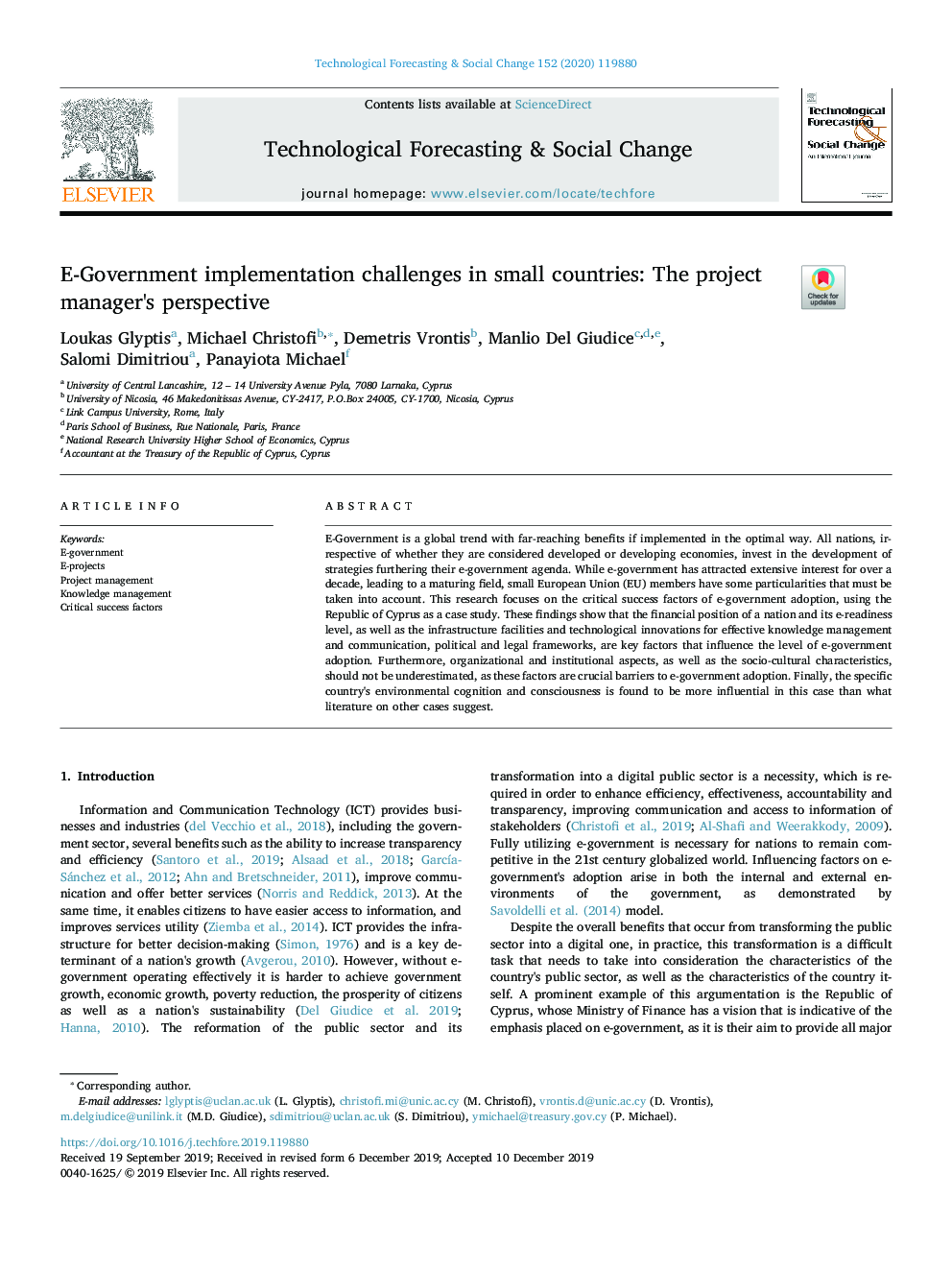| Article ID | Journal | Published Year | Pages | File Type |
|---|---|---|---|---|
| 13456923 | Technological Forecasting and Social Change | 2020 | 11 Pages |
Abstract
E-Government is a global trend with far-reaching benefits if implemented in the optimal way. All nations, irrespective of whether they are considered developed or developing economies, invest in the development of strategies furthering their e-government agenda. While e-government has attracted extensive interest for over a decade, leading to a maturing field, small European Union (EU) members have some particularities that must be taken into account. This research focuses on the critical success factors of e-government adoption, using the Republic of Cyprus as a case study. These findings show that the financial position of a nation and its e-readiness level, as well as the infrastructure facilities and technological innovations for effective knowledge management and communication, political and legal frameworks, are key factors that influence the level of e-government adoption. Furthermore, organizational and institutional aspects, as well as the socio-cultural characteristics, should not be underestimated, as these factors are crucial barriers to e-government adoption. Finally, the specific country's environmental cognition and consciousness is found to be more influential in this case than what literature on other cases suggest.
Related Topics
Social Sciences and Humanities
Business, Management and Accounting
Business and International Management
Authors
Loukas Glyptis, Michael Christofi, Demetris Vrontis, Manlio Del Giudice, Salomi Dimitriou, Panayiota Michael,
